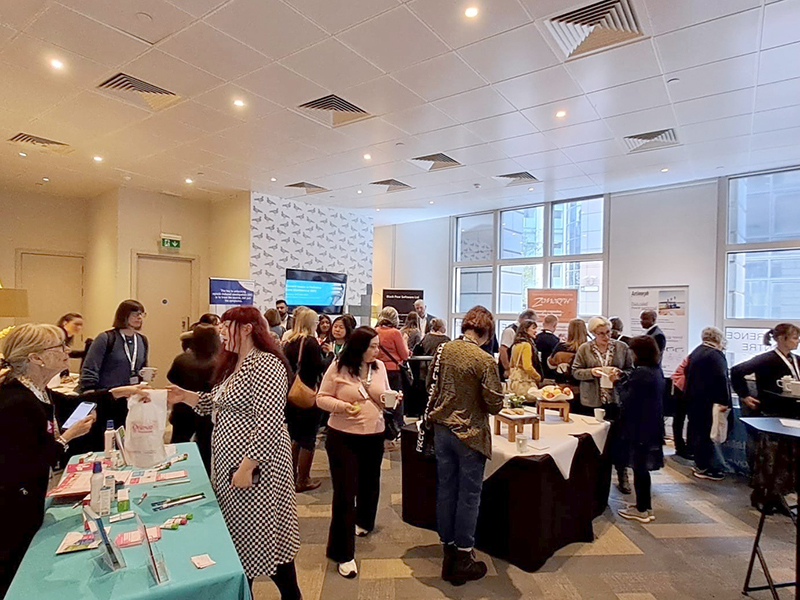The 24th National Parkinson’s and Associated Disorders Conference reconvened on June 6th at the America Square Conference Centre in London, bringing together a body of dedicated experts, professors, neurologists, physical therapists and more to discuss recent advances and understandings in the field of Parkinsonian illnesses.
Professor Alastair Noyce of Queen Mary University, London and Barts Health NHS Trust opened the conference by introducing Parkinson’s disease (PD), noting that the neurodegenerative disorder has five notable points where medical information is currently lacking: unknown cause, late diagnosis, inaccurate diagnosis, poor markers of severity, and underrepresentation of minorities in performed studies. Professor Noyce explained that prodromes of PD are mostly non-motor symptoms including REM behaviour sleep disorder, hyposmia, autonomic dysfunction, and risk genes like LRRK2 and GBA1; focusing on prodromal PD can help many improve their quality life by speeding up diagnosis. Knowing risk factors for PD, such as pesticide exposure, Type 2 diabetes, infectious disease, and trichloroethylene exposure can aid in PD diagnosis and prevention.
Dr Julie Jones, Associate Dean of Robert Gordon University, gave the next talk focusing on the impact of exercise on PD progression and patients. Dr Jones shared studies that found aerobic exercise can slow PD symptom progression, improve health and well-being, encourage social connection, and affect brain health by increasing brain-derived neurotrophic factor and decreasing inflammation. She emphasised the importance of finding the optimal exercise prescription for patients, starting immediately after diagnosis, and modulating it throughout the course of their illness.
The following talk was supported by the Parkinson’s UK Excellence Network; Director of External Relations Juliet Tizzard shared the Network’s national priorities, as well as the steps and initiatives that would be taken to carry them out. Initiatives include: PD nurses your future, integrated multidisciplinary care, time critical medication, and better bone health.

After the break, Dr Jane Macnaughtan’s (Hepatology Institute for Liver and Digestive Health, UCL, UK) presentation delved into impact of the gut-brain axis on Parkinson’s disease. Dr Macnaughtan described that the aggregation of a-synuclein and lewy bodies begins in the gut and migrates up the vagus nerve to the brain. She emphasised that GI symptoms are among the most common non-motor prodromal symptom of PD and that a link has been found between constipation and earlier onset of dementia. Recent studies explicated in the presentation showed potential for vagotomies in protecting mice from PD. Finally, she ended by stating that bacterial profiles can characterise prodromal PD and varied diets and probiotics can help increase bacterial diversity, as a decreased diversity is associated with disease.
The neuropsychiatry of PD is extensive, but this lecture focused on the most frequently asked questions in the field. Dr Ross Dunne, Consultant and Honorary Senior Lecturer at the University of Manchester, UK, did so by addressing questions and making recommendations on antidepressants, how to approach the topic of suicide, avoiding collusion, and more. While this lecture was a bit more targeted towards GPs and Psychiatrists working with PD patients, Dr Dunne included humour and anecdotes to make his lecture enjoyable and informative for everyone.
Dr Ed Richfield, Consultant at the North Bristol NHS Trust, UK, presented on palliative care surrounding PD. The talk began with a description of primary vs secondary palliative care, before expanding to patients’ palliative needs, which include: physical, neuropsychiatric, functional, spiritual/existential, financial, and health belief support. Dr Richfield continued by discussing the palliative care toolkit that providers can utilise, ranging from theoretical frameworks to simply having friends in the right places. This presentation ended with discussing symptom frequency at the end of life, and how to identify and ease them.
Technology plays a growing role in modern society and Camille Carroll, Professor of Clinical Neuroscience and Honorary Consultant Neurologist at Newcastle University, UK, discussed this in her talk on Artificial Intelligence and Tech in PD. Professor Carroll first provided some context, citing that: loss of nuclear family support, increased social pressures and workplace challenges, lack of neurologists per capita, and challenges of healthcare access for rurality, could be addressed through technology and AI. Wearable technology such as Kinesia, Pkg, and Saturn have the potential to help with symptom monitoring and management, but devices and technology are not without their challenges. Unbalanced data sets and existing biases in healthcare can cause biased results from AI.
Consultant Neurologist and Senior Lecturer at the University of Manchester, UK Dr Christopher Kobylecki’s talk focused on atypical Parkinsonism illnesses and how they are identified, emphasising the importance of acting as detective to note and pursue even small abnormalities and symptoms in patients to ensure accurate diagnosis and maximised quality of life. After dividing most of these disorders either into a-synucleinopathies and tauopathies, examples of multiple symptom atrophy, progressive supranuclear palsy, corticobasal degenerative syndrome, and more were shown. These illnesses present differently than primary PD and patients may respond differently to common PD medications as well.
Dr Robin Fackrell, Consultant Physician at the Royal United Hospital, UK, chaired the conference and provided an insightful talk on ethics to end the day. Dr Fackrell began by introducing the concepts of beneficence, non-maleficence, autonomy, justice, and primo facie, before delving into several anonymised cases. He first presented the cases to the audience, gathering the medical professionals’ reactions and suggestions for care before explaining how he handled the case himself. This talk was an engaging end to a successful day hearing of new research and innovations in the growing field of PD.
The Parkinson’s and Associated Disorders conference will return on Thursday 6th February 2025 in London, alongside the National Dementias Conference. Visit our website www.mah-parkinsons.co.uk for updates and further information.